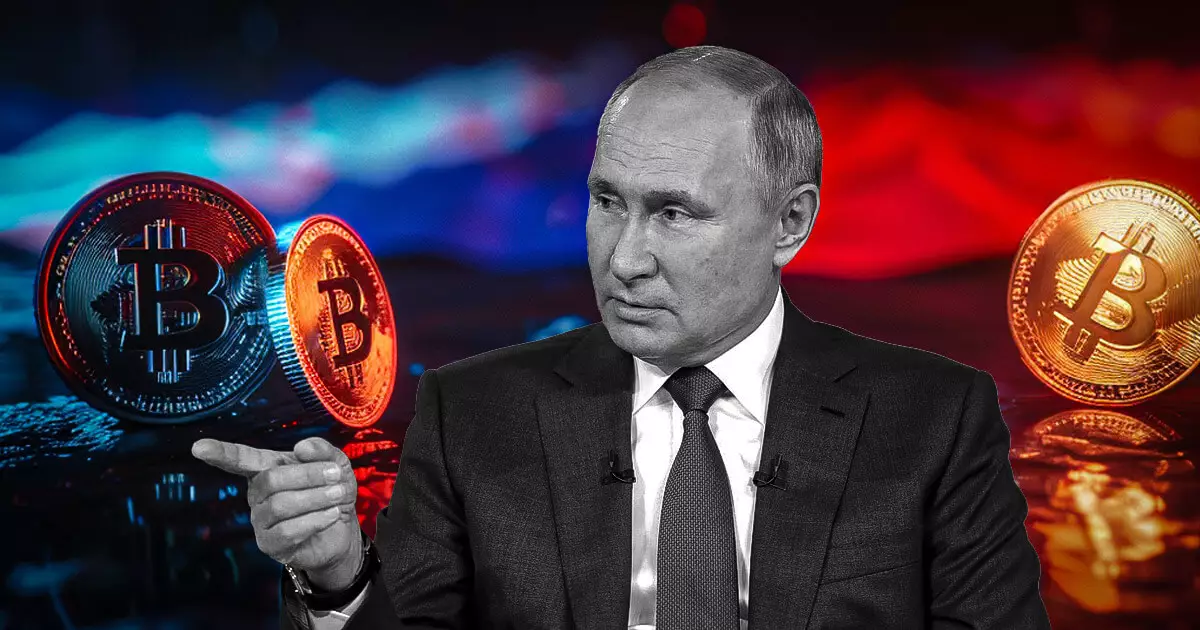In a bold declaration at the Investment Forum in Moscow on December 4, Russian President Vladimir Putin heralded Bitcoin (BTC) and other digital currencies as indispensable instruments in the global financial ecosystem. He asserted that these technologies are essential for rectifying financial inefficiencies and bolstering economic stability. By positioning Bitcoin as a potential successor to the US dollar in the realm of global reserve assets, Putin lays the groundwork for a narrative that challenges the existing financial hierarchy led by the United States.
Putin’s critique of the US government’s manipulation of the dollar’s supremacy—utilized as a political tool to exert pressure on nations—is a calculated move aimed at rallying support for alternative currencies. He highlighted the $300 billion in Russian reserves that became inaccessible following Western sanctions in the wake of the Ukraine conflict, underscoring a critical vulnerability in reliance on fiat currencies that can be subject to geopolitical dynamics. His remarks emphasize a growing seismic shift among nations toward decentralized digital currencies as reliable alternatives.
Legal Framework and Economic Strategy
In line with this vision, Russia recently enacted legislation that grants legal status to cryptocurrencies, treating them as property. This legislative development signals a significant transition in the nation’s economic policy, aiming to provide tax incentives for transactions processed through electronic payment systems, as well as exemptions for crypto mining activities. Such a framework portrays Russia as not merely reactive to Western sanctions but proactive in establishing a conducive environment for digital innovation.
The recognition of cryptocurrencies in Russia reflects a broader objective to insulate the economy from external pressures and foster financial self-reliance. This move is crucial, especially in light of the war-induced economic turmoil. By embracing digital assets, Russia is attempting to create a resilient financial infrastructure that minimizes risks associated with fiat currency dependency.
Global Implications for Cross-Border Transactions
Furthermore, the discussions emerging from recent BRICS summits underscore the potential of cryptocurrencies to facilitate seamless cross-border transactions, effectively challenging the long-standing dominance of traditional banking systems. This adaptability seen in digital currencies positions them as vital instruments for nations seeking financial independence from Western-led initiatives.
Putin’s vision for Bitcoin and other cryptocurrencies stands in stark contrast to recent approaches taken by the United States. While there is indication of a more supportive regulatory environment emerging under President-elect Donald Trump’s administration, Putin’s endorsement of technological integration with digital currencies represents a stark divergence in strategic outlook. The US might be poised to become more inclusive toward cryptocurrencies; however, Putin’s rhetoric indicates a firm commitment to adopt innovative financial solutions that could reshape global power dynamics.
As Bitcoin continues to gain traction as a formidable financial tool, the implications for global economics are profound. Countries like Russia are leveraging the capabilities of digital currencies not simply as means of transaction but as a means to assert economic sovereignty. The transformational potential of cryptocurrencies is only just beginning to be realized, and if leaders like Putin have their way, we may witness a significant shift toward a new financial paradigm where the control of monetary systems becomes more decentralized and diversified.

